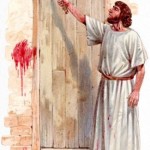 “Friends” whom we had known for a couple of years came to our house one day singing the praises of an investment opportunity that had fallen into their lap.
“Friends” whom we had known for a couple of years came to our house one day singing the praises of an investment opportunity that had fallen into their lap.
“This could be the next Trivial Pursuit!”
They were referring to the humble beginnings of the popular game, which was funded by a small group of friends, all of whom ended up with huge financial gains as a result of their faith in Chris Abbott and Scott Haney’s brainchild.
We were now being offered an opportunity to be part of a small group that could potentially strike it rich by investing a minimum of $2000 (which was a month’s take-home pay for me at the time) in this “fail-proof” idea conceived by someone whom they trusted with all their heart as well as their savings.
Sulojana and I talked it over. She had some reservations. I did not.
After all, these were our friends. After all, how often does an opportunity like this come along? After all, the idea was well thought-out, had potential…even I could see it! She decided to go along with me.
I went to the bank, got a loan and forked the money over. Now we were shareholders in the next great Canadian success story.
Fast forward one year. We get the news that the one whom my friends had trusted had absconded with their savings and our loans, never to be heard from again. We had lost every penny. To add insult to injury, the bank continued to make monthly demands for the rest of our “investment” plus interest.
Several months later we discovered that another friend of ours had also been approached about the same “opportunity.” However, being a business analyst by profession, he had spotted the downside right away and politely declined the offer.
And then he asked me: “Jeeva, why didn’t you pick up the phone and ask my opinion before you decided to go ahead with it?”
To be honest, the thought didn’t even cross my mind. Obviously, I had forgotten these words of wisdom from Proverbs 24: 6: “There is safety in a multitude of counselors.”
I knew instinctively that “two are better than one” (Ecclesiastes 4:12) and was content in the knowledge that Sulojana and I had made this decision together…but we could’ve done one better!
I had total access to the wisdom, knowledge and discernment of my business analyst buddy. By seeking his counsel, we could have spared ourselves the agony of losing $2000.
In the ensuing 20 years, I have noticed that most of the “successful” people I have personally come to know surround themselves with a trusted group whose counsel they value and seek prior to making major decisions.
I can also give you countless examples of those who ignored this principle and made choices that turned out poorly.
One of the greatest blessings we have as members of the Body of Christ is access to the wisdom of the Holy Spirit directly from Him and through what He has deposited into others who are also members of this One Body.
All it takes sometimes is one simple phone call, one e-mail, one text message to a trusted friend who has no vested interest, a time of prayer with a pastor or counsellor to help you make the right choice.
It will definitely prevent you from making mistakes that could hold you back from accelerating toward your destiny…like investing in the next “Trivial Pursuit.”









Follow Us